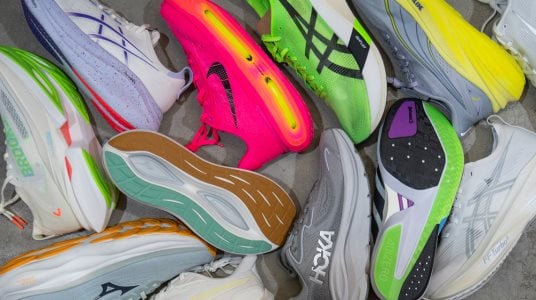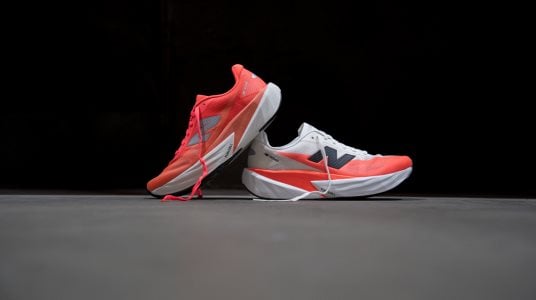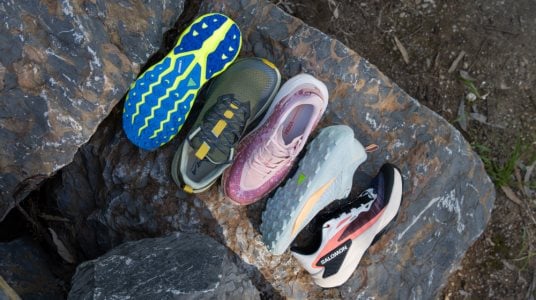RunDNA Team: How Do We Fuel?
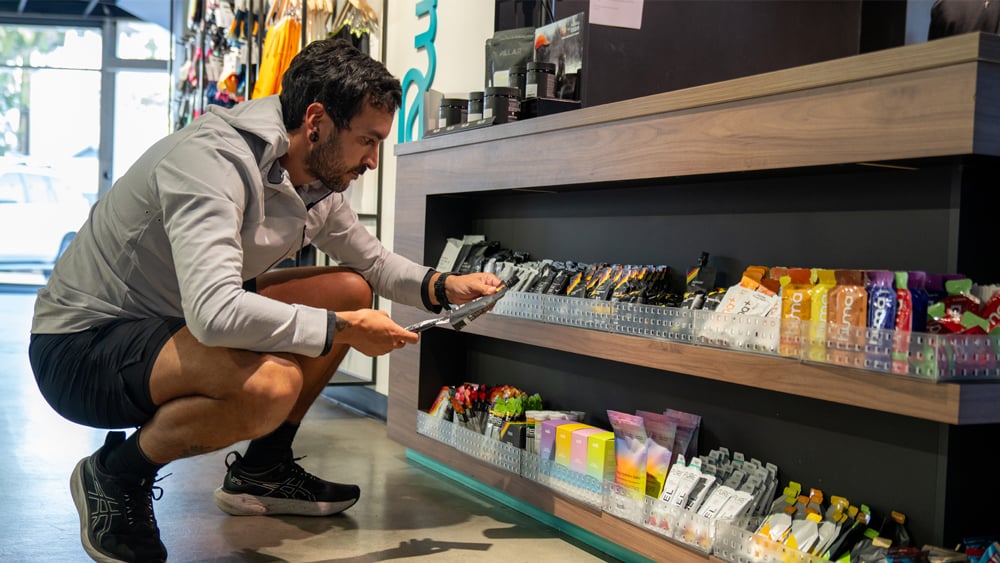
The team and their approach to race nutrition
Sebastian is a dedicated trail runner who prefers to keep his pre-race routine as close to his everyday habits as possible. He leans into familiarity and consistency to help him feel prepared for race day.
Shaun comes from a road running and triathlon background. With years of racing under his belt, he knows the importance of building and refining a routine that works across different distances and race formats.
Georgia focuses on road races between 5km and the half marathon. She’s learnt to keep things simple and practical, favouring options that are easy to manage even when race day nerves kick in.
Tiaan splits his time between the trails and the ultra-distance scene. He brings a measured, methodical approach to his prep and has learnt what works through plenty of testing on long efforts.
What’s your ideal pre-race breakfast?
Seb: My go to pre-race breakfast is simply my usual everyday mix of oats, nuts and fruit. I don’t make any changes and if anything, I just increase the portion size. It provides plenty of carbs and is familiar to my stomach.
Shaun: Crumpets & Jam.
Georgia: Original rice cakes topped with peanut butter and sliced banana.
Tiaan: Bagels with jam and a coffee + electrolyte water.
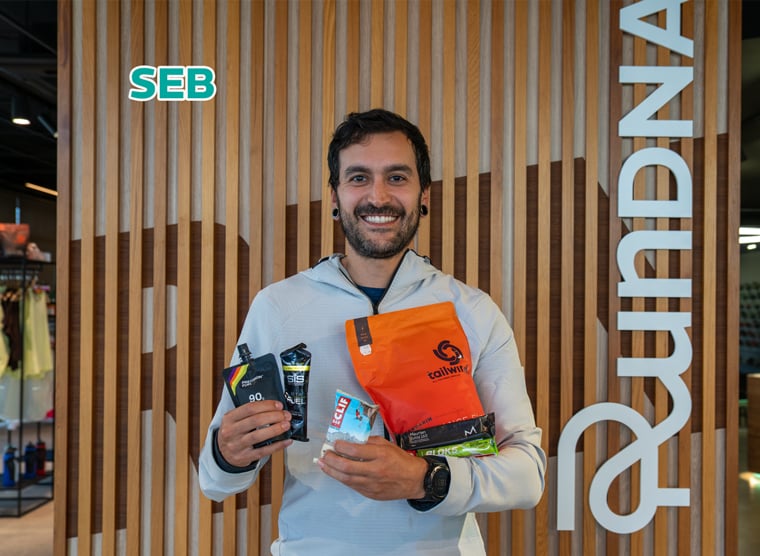
What kind of fuel (gels, chews, drink mix) do you prefer during a race, and why?
Seb: It depends on the type and duration of the race. For shorter races (5 - 8 hours), I mostly rely on gels like Precision Fuel 90g, SIS Beta Fuel + Caffeine and high-carb drink mixes like Tailwind.
For longer races, I reduce the concentration of Tailwind to avoid taste fatigue and incorporate more solid foods like Clif Bloks, bars, Maurten bars, potatoes, Vegemite sandwiches, rice cakes and whatever is available at aid stations (fruit, bread, chips and ginger beer).
Generally, the longer the race, the lower the intensity, which makes it easier to digest real food; for shorter races, simpler options like gels and drink mixes work better for me due to the higher effort levels.
Shaun: For events up to the marathon I use almost exclusively Precision Fuel and Hydration 90's and a 30g caffeine gel with 40-60mins to go. If I'm racing a longer event like a trail ultramarathon, I start on whole foods like bananas or muesli bars in the first 60mins, then to chews like Clif Bloks for the second hour and then gels for the remaining 2-3hours. Simultaneously I'm drinking Tailwind for a top up of carbs, electrolytes and fluids throughout.
Georgia: In the hour prior, I usually reach for a Maurten Solid C bar and will sip on some Precision Hydration Carb and Electrolyte Mix. With 15-20 minutes before the gun goes off, I tend to consume a Precision Hydration chew if I’m doing a half marathon and for anything shorter, I will usually take a Precision Hydration 30g carb gel. During a half marathon, I will stick with the same gel throughout - Precision Hydration 30g carb gel - it works, sits well and I enjoy the minimal flavour to it.
I like all the above as they aren’t super sweet or overpowering so they're easy to get down quickly and digest. I have used all of these nutrition products during training, including on the longer and harder efforts, so I know they will sit well. Personally, I like having something more solid in my stomach like the bar compared to just relying on gels pre race. I find that if I am taking on gels during the race, they will sit better if I have had solids prior to starting. I also like to make sure that what I am consuming are things I can have on my way to the event at ease when I may be walking or on public transport.
Tiaan: I use gels on shorter races with a drink mix, but for longer events I tend to use chews as well as real food like potatoes and stroopwaffles. I also use salt tablets to support my hydration strategy.
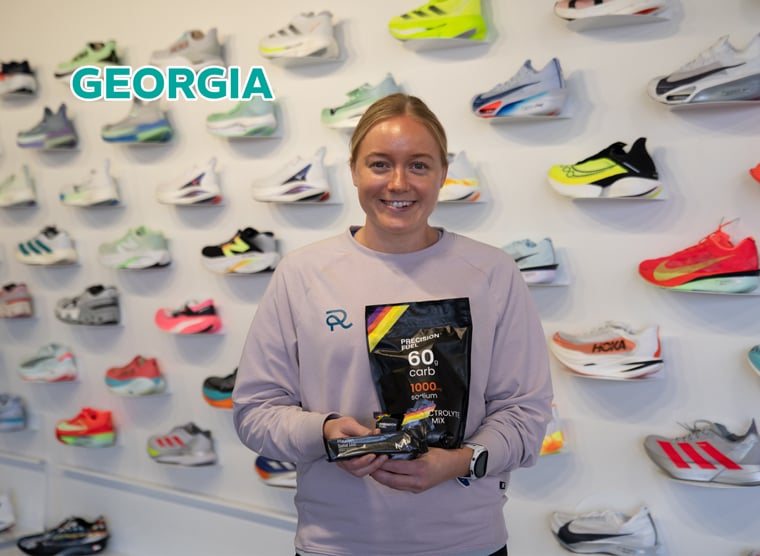
Do you have a fuelling schedule (e.g. every 30 minutes), or go by feel?
Seb: I usually have a carb per hour intake goal and aim to hit that consistently. I try to spread it out across the hour, typically taking in fuel every 20 to 30 minutes.
Shaun: I'll try to eat every 20-25mins but depending on the profile of the course I will avoid food during a hard climb, in turn studying the course profile means I can eat when my body is able to digest food a little better like on flat terrain or even down hills.
Georgia: For me I will have a gel every 30-35 minutes and try to time it in with some fluid at a water station. Even if I don't feel like it at the time, I will still make sure I have the gel as I know it will benefit me a lot more as I get further into the run. I also feel a lot better post run when I have had sufficient gels, it almost kick starts that recovery process.
Tiaan: I try to consume 60-90g of carbs an hour in ultras and 50-70g in shorter. I go to a mouth full of liquid every 15min (500ml an hour) and food/gels every 20-30min.
Have you ever had a race where your nutrition plan made a huge difference—for better or worse?
Seb: Absolutely, there have been times where I underfuelled and bonked hard and other races where my fuelling strategy worked well, giving me steady energy throughout the event.
Shaun: I've been running for long enough to have experienced both sides of the coin. Days where nutrition has made me feel unstoppable and days where getting my nutrition plan has stopped me in my tracks (usually looking for a bathroom).
Georgia: In my first half marathon a few years ago at the Melbourne Marathon Festival, I couldn't open my last gel at the 15km mark whilst I was running. In the end, I gave up and popped it back in my pocket and within 10-15 minutes, I started to get body shivers (on a warm day!) and lightheaded. In hindsight, I should have probably pulled over to the side of the road, properly opened and taken the gel and it may have paid off at 18kms when I wasn't feeling too flash.
Tiaan: My nutrition strategy really helped me in my 60km ultra as I kept to my plan of 75g of carbs an hour and never dropped intensity or hit the wall. I also used food I trained with which meant my stomach felt fine with the nutrition throughout the race.
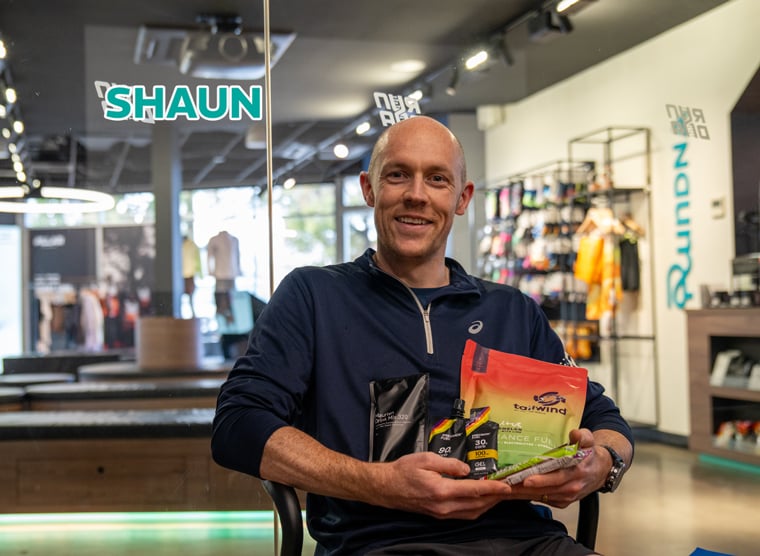
What’s one piece of advice you’d give to someone new to race day fuelling?
Seb: Start small and slow. There’s a lot of information out there about the "right" fuelling approach. If you're new to race fuelling, it’s best to gradually increase your carb and calorie intake so your body can adapt and tolerate it without issues.
Shaun: Practice, customise, practice. I understand that gels, chews, drink mixes can be expensive, but work on finding the right combination that works for you. Make sure to practise at your race intensity as well.
Georgia: Test all different flavours and brands in the early days of your training block so that by the time you hit the longer runs and race specific workouts, you have all your nutrition locked in.
Grab some scissors the morning of the run and pop a small snip at the top of the gel where you tend to open it from, it will make opening it at the back end of the race a lot easier. I've learnt that our arms and hands also become quite fatigued when running as they sit in the same position for a majority of the time!!
Tiaan: Practice what you will race with in training at the intensity you will race at. It's easy to eat food in training but when you are red lining in a race, your body might not be too happy so eat the nutrition on harder efforts, not just long runs.
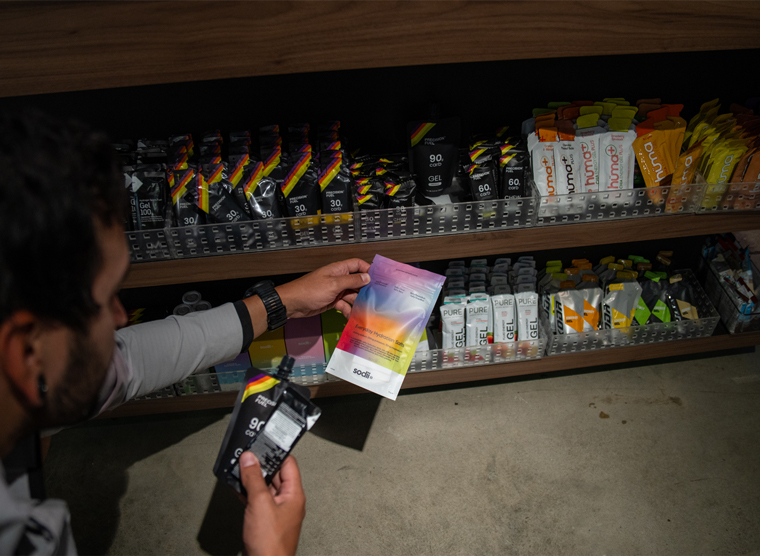
Key takeaways
Race day nutrition is one of those things our team has spent a lot of time figuring out and they’ve all landed on slightly different strategies. What's the common thread? We all learnt what works through trial and error during training, not just on race day. So while we’ve shared some of our team's favourite approaches in this blog, the most important takeaway is that finding the right fuelling plan is personal. It takes testing, tweaking, and listening to your body, but once you dial it in, it can make all the difference when the starting gun goes off.
